




Discover the valuable insights our consultants provide. Subscribe to our Insights blog to receive email alerts whenever we post something new!


Published on: Jun 4, 2024 5:41:45 PM by Cooper Skat
Updated on: January 23, 2026
Whether you already have Business Intelligence (BI) systems in place, or you are exploring options for BI capabilities, being able to scale those capabilities is of the utmost importance to maximize the value of your data.
Many organizations experience significant challenges that hinder their ability to scale effectively. Here are some common challenges to look out for and solutions to future-proof your BI systems.
Fragmented data and data silos are a primary challenge faced by many organizations. When data is scattered in various locations, it’s difficult to collect and analyze effectively. This can limit your ability to make informed decisions and have a complete picture of the business, or lead to timely analyses that are delayed in getting the right information to stakeholders.
Implementing robust data integration solutions, either by integrating systems or leveraging ETL (Extract, Transform, Load) tools, can help consolidate data from multiple sources into one unified view.
Several technologies can be used for this purpose, and having a centralized database acts as a way to store and combine relevant information for analyses. A database can act as an integration hub between systems that cannot easily integrate, and you can use tools to push and pull data to and from systems as needed.
Not all systems are created equal when it comes to capturing and managing data. Many organizations start with basic systems that may work for a time but are not scalable as the business grows and data complexity increases. An example would be a simple ERP system that is not suited for multiple entities, a complex business structure, or one that doesn’t handle inventory solutions well.
During the implementation of business systems, think about what your future state will resemble. As your business scales, recognizing when to upgrade to more robust systems will help manage increased data volume and complexity. Using the above ERP example, you may need to level up to a more robust ERP system to handle complex manufacturing or multi-entity requirements.
 Insight: Building a Strong Foundation: Importance of Data Governance
Insight: Building a Strong Foundation: Importance of Data Governance
Your data architecture must be capable of handling a growing volume of data and users. Often, databases designed for smaller operations can't handle the increased load as new data sources and users are added. Choices you make on modeling data and structuring your database affect downstream performance, and as data volume increases you might need to adjust.
When designing your data architecture, consider future growth. Cloud-based solutions provide virtually infinite scalability, so you can easily expand your data capabilities without worrying about hardware limitations.
Think through your company’s data model up front and consider the pros and cons of different approaches, keeping growth in mind. Lastly, prioritize security during your implementations and consider only incorporating data you need to promote privacy if using sensitive information.
On-premise servers can quickly become a bottleneck due to hardware limitations. Physical servers are constrained by their capacity, which can limit performance as demand grows. They can also go “down,” potentially causing valuable data to be lost. Maintaining servers, upgrades, security patches, and more can quickly become burdensome.
Cloud technologies provide on-demand resources, ensuring your BI systems can grow with your business needs. Migrating to cloud platforms provides the flexibility and scalability required to support long-term growth, and security can be as robust as your team needs it to be. Many of these are SaaS, meaning the vendor performs upgrades and maintenance.
 Insight: Breaking Down Data Silos: Why Data Integration Matters
Insight: Breaking Down Data Silos: Why Data Integration Matters
As you plan to scale your BI capabilities, don’t just think of the here and now. Here are the main things to keep in mind for future state BI.
Can your chosen products keep pace with growth? Choose cloud capabilities whenever possible to ensure you have unlimited space for capturing and storing data. If you plan to or must use a physical server, be aware that there are capacity limits, making cloud solutions preferable to avoid being "maxed out" of growth potential.
How is your data structured? How will new data inputs flow through the system? Consider these questions and how easy it is to add additional fields, products, systems, etc. in the future.
A flexible data structure helps accommodate evolving business needs and additional data points. Take the time to clean data in source systems, enforce constraints where relevant, and ensure unique identifiers are present to ease linking data together.
As you journey through scaling up your BI system, proper protocols must be in place. Ensure there are proper growth roadmaps and communication with the necessary stakeholders. These governance processes ensure consistency and keep individuals informed of data processes and changes as they occur.
 Insight: Data-Driven Decisions: Streamlining Decision-Making Processes
Insight: Data-Driven Decisions: Streamlining Decision-Making Processes
Choosing SaaS when possible will relieve some of the burden that can be associated with physical hardware. Here are some SaaS products that can be used as you scale your BI capabilities.
Scaling your BI capabilities can be a daunting prospect, but we’re here to help. Contact us to learn more about how we can work together to make sure your BI system can handle growth with ease.
© 2024 SVA ConsultingShare this post:

Cooper is the Director of Analytics at SVA Consulting. Within the Analytics team, Cooper specializes in data strategy, data visualization, data engineering, and process automation.







contact@svaconsulting.com

(800) 366-9091

1221 John Q Hammons Dr., Suite 201, Madison, WI 53717

18650 W. Corporate Dr., Suite 205, Brookfield, WI 53045

1600 Utica Ave S, 9th Floor,
Saint Louis Park, MN 55416

7135 E. Camelback Road, 230, Scottsdale, AZ 85251

109 West Commercial Street, Suite 107, Sanford, FL 32771
©2026 SVA Consulting, LLC. All Rights Reserved. | Privacy Policy | Cookie Policy | CCPA
